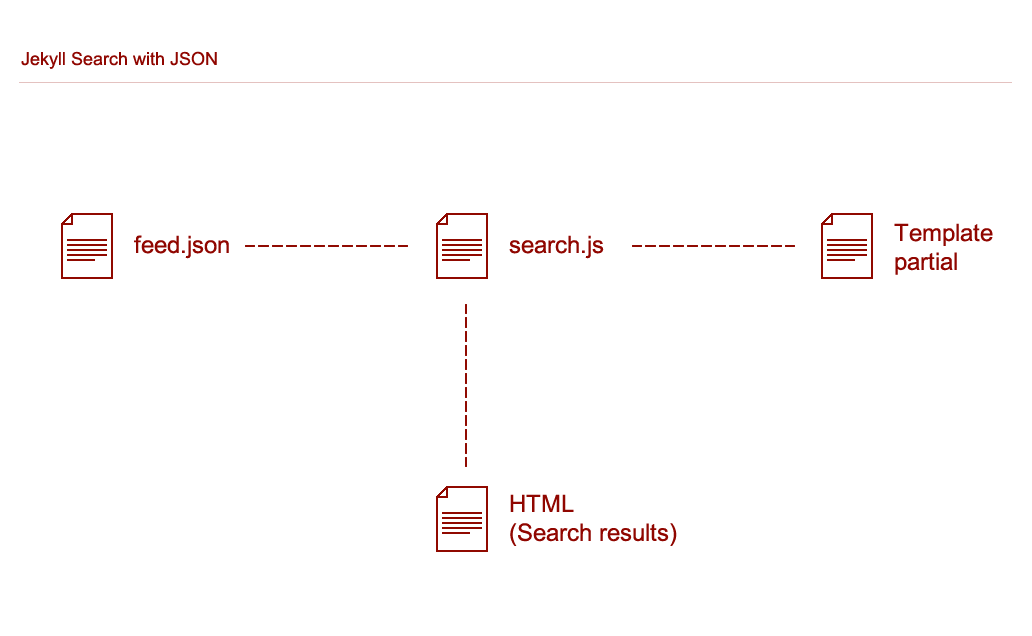The basic way searching works is that you create an index of all content on a site you want to search, then the search query is checked against that index. On something like a WordPress site, this query is checked against the database, which is a defacto index. Google does its own indexing of your site, so the Google queries are checked against Google’s index (likely also stored in a database).
Since Jekyll sites are static (meaning that they are only files, no databases included) there is no database to search. That leaves us with two options:
- Set up a Google Custom Search Engine. Google will index the site for you and display the results.
- Create an index on your own and make sure your search queries check against that index.
I love Google CSE, but I decided to go with the second route this time. I used Mat Hayward’s Jekyll Search scripts to do the heavy lifting, but I edited them to suit my needs. It is lightning fast!
These scripts:
- Generate a JSON file of my site contents when the site is built
- Compare the search query to the contents of the JSON file
- Return the results based on a template

I modified the way the dates are formatted, how the excerpt gets put into the JSON file, the output styles, and put in a conditional for external link posts.


